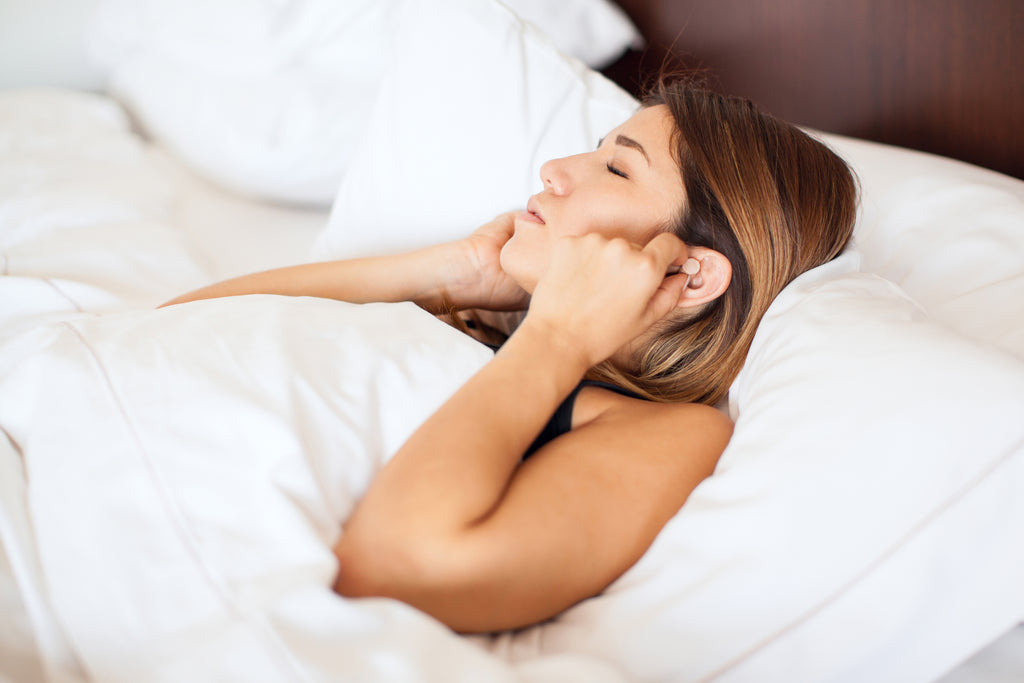
There are few things worse than not being able to fall asleep. You may be facing a deadline at work, a spouse who expects date night tomorrow, or a team that expects leadership. If you can't sleep, you're unlikely to be a top performer—or a great companion on date night.
Plus, it can be dangerous to be sleep-deprived. Your judgment is less than stellar, and your reflexes don't respond as quickly. People are sleep-deprived if they've received less than seven hours sleep.
But there are several things to do if you can't fall asleep. Some are about reinforcing good sleep habits, and some are about making sure you aren't interrupted by light or noise. Here are ten of the best practices for falling asleep every night.
1. Stay in the Same Place Every Night
Most people have more difficulty falling asleep if they are in unfamiliar surroundings. The solution? Make sure you are in the same place when it comes time to fall asleep. Sounds obvious, right? But many people who can't sleepwalk around and try to fall asleep on the sofa or a comfortable chair rather than their bed—that only makes you more wakeful.
2. Go to Bed at the Same Time
Maybe sometimes you go to bed at 10:00 pm, and the next night you stay up until midnight catching up with your favorite TV show. Then, the next night, you turn in at 9:30 pm. The night after that, you're still up at 1:00 am.
That schedule is not a sustainable rhythm, and your body knows it. It can't get used to falling asleep at a consistent time. You need to be your body’s sleep guide. Choose a time and stick with it. After establishing a routine, your body will associate that time with sleep.
3. Drink a Soothing Beverage
Believe it or not, warm milk works when you can’t fall asleep. It soothes your body just enough to get into a drowsy state. If warm milk doesn't sound appealing, another soothing beverage, like an herbal and caffeine-free tea, will work also. Cocoa is also a favorite for pre-bed snacks.
4. Count Some Sheep
Think this is a joke? You need soothing and repetitive actions to fall asleep. Counting will do it. You need to lie still with your eyes closed and visualize those sheep jumping over a fence. One. Two. Three. Slowly. Count sheep to 100. Start over again if you're still not asleep.
5. Make Sure the Room is Dark
Light can keep us awake. You need to make sure your room is dark enough to sleep. If your spouse is reading with a light, negotiate. Can they use the other room to read? If illumination from another room spills in, fix that. Place a towel over the gap between door and floor. If your room gets light from the outside, adjust the curtains. If all else fails, buy a sleep mask. The minute you put it on, it will be dark for you!
6. Eliminate Distracting Noise
Know what else can keep humans awake against their will? Noise. It doesn't even have to be a loud noise. Maybe you've told your children that quiet music doesn't disturb you. Maybe at one time, it didn't. But now, it's serving to make you wakeful. Explain this to people making noise around you. Environmental factors, like traffic, can also create sound. If that's the case, you can buy foam or silicone earplugs to keep out the noise.
7. Listen to Soothing Sounds
Okay, we know we just said make sure there's no distracting noise—and now we're saying listen to soothing sounds. Here's the difference. A car purring is soothing. In many people, it causes relaxation and deep breathing. Relaxation and deep breathing will eventually lead to sleep. But pop music, even on low, is not likely to be as soothing. Why? Because music has an element of unpredictability. Cat purring, rain falling, and ocean waves all offer a repetitive rhythm.
8. Try Deep Breathing
So, you know how we just said relaxation and deep breathing leads to sleep? Go ahead and practice deep breathing all by itself. Take a breath. Hold it for 10 seconds. Breathe out. Hold for 10 seconds. Take another breath. Hold for 10 seconds. Breathe out. Hold for 10 seconds. Rinse, lather, repeat.
9. Review What You're Eating and Drinking Past Noon
If you're having repeated problems with falling asleep, your diet could be to blame. Review what you're putting in your mouth past noon. Coffee and other foods with caffeine can be big culprits here. Even decaffeinated coffee and chocolate have caffeine. Liquor can also be a culprit, as well as dense foods or junk food right before bed.
Some people have difficulty falling asleep if they've eaten spicy foods. Has chili or Szechuan been on your menu? Try eating more easily digestible foods for dinner and see if that makes a difference.
10. Envision a Mental Stop Sign
If stress or repeated thoughts about daily life are keeping you awake, take a leaf from psychologists. They often tell patients to hold up a virtual "Stop" sign when worrisome thoughts intrude. So imagine this: you're in bed, trying to get to sleep, and a conversation you had with your boss two days ago intrudes. Instantly, you're wakeful.
Instead, visualize a sign reading "stop." That's right, a bright-red, octagonal sign just like at intersections. Tell your mind this: once you see it, all thoughts other than sleep are banished. What this does is create a zone around you where stressful daily life is not allowed to go—just like cars aren't allowed to go if there's a stop sign.
And there you have it. Try these ten things, either individually or in combination. A good sleep requires a routine, a comforting and familiar environment, little stress, adequate hydration, and proper nutrition. With enough effort, you will find yourself getting a good night’s sleep—every night.
Contact us for more information.




